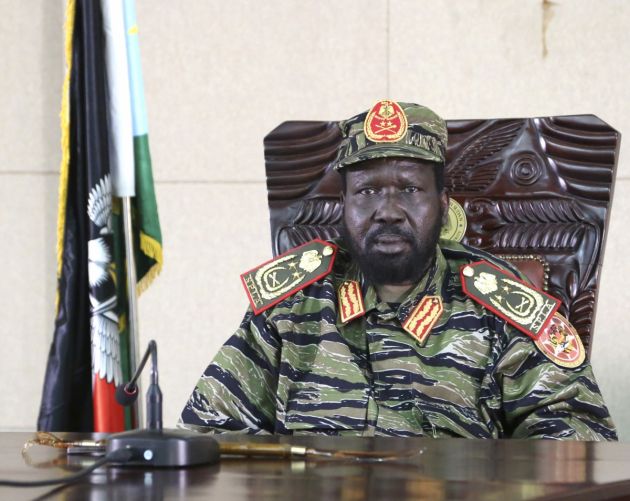South Sudan leader says coup repelled, churches seek 'Mandela moment'

The world's newest country, South Sudan, was teetering on a coup Monday and the moderator of the World Council of Churches called on the country's government to have a "Mandela moment" as it deals with divisions.
Agnes Abuom, a Kenyan and elected moderator of the main governing body of the WCC, its central committee was speaking from Geneva.
"Just when we have laid Mandela to rest and we are celebrating his life of forgiveness and reconciliation, of justice, of freedom, of the capacity to be content and to be inclusive: this is really a lesson for South Sudan," she said.
Gunfire rang out again in South Sudan's capital Juba late on Monday hours after President Salva Kiir said his forces had quelled an "attempted coup" by his sacked deputy, Reuters news agency reported.
Abuom was at the headquarters of Christian grouping representing more than 500 million Christians to attend a Monday morning memorial to Nelson Mandela who died on December 5, aged 95.
The service was held the day after the first black president of South Africa was buried at his home in Qunu in South Africa's on the country's Day of Reconciliation holiday.
It is also the also the anniversary of the founding of the armed wing of the ruling African National Congress' military wing Umkhonto we Sizwe (Spear of the Nation).
WCC general secretary Rev. Olav Fykse Tveit has sent a letter to South Sudanese president Salva Kiir Mayardit, expressing profound concern for the people of the nation.
He wrote in part, "The people of South Sudan have suffered for several decades and are now longing for peace and justice. We pray that the situation will quickly normalize and that peace will prevail again soon."
News reports Monday said President Kiir announced Monday that an attempted coup by soldiers loyal to his former deputy, Riek Machar, had been quashed. Machar and others involved have apparently fled to the UN Mission in the capital Juba.
The struggle is seen to reflect emerging concerns and differences between ethnic groups in Sudan.
Abuom stressed concern for the churches in South Sudan.
The country's churches through the Sudan Council of Churches and the WCC were deeply involved in reaching a peace agreement between Sudan and South Sudan. They helped to facilitate the formation of South Sudan as the youngest nation in the world.
South Sudan, a country of mainly Christians and followers of African traditional religions became independent of its northern mainly Islamic neigbor, Sudan, on July 9, 2011 after decades of one of the bloodies conflicts of the second half of the 20th century.
Abuom said churches in Southern Sudan had called for calm, noting that as a young nation it "needs a lot of latitude for different voices given its multi-ethnic, multi-cultural, multi-religious composition."
"It is unfortunate that there has been an attempted coup, and we would want to say to those people that there is no space again in Africa for armed rebellion," said the WCC moderator.
"We believe in dialogue, in the power of the vote and election to change leadership peacefully and to transit from one leadership to another."
The WCC's general secretary Rev. Olav Fykse Tveit also called on the government of South Sudan to reach out to all within the country in a way that reflects the highest ideals of Mandela.
"Mandela has helped us see the worst and best in humanity," Tveit said. "He helped us to be realistic; even more important, he helped us believe in the one humanity and to love that one humanity."
Tveit met with Kiir in April 2013, when Kiir said, "After the independence of South Sudan, it is the churches that have the capability to bring people together and help rebuild the country."
The WCC leader said Kiir had told him, "South Sudan is a state where all religious communities, including Christians, can work freely, and their contributions for the social betterment, regardless of their religious associations, are welcomed."